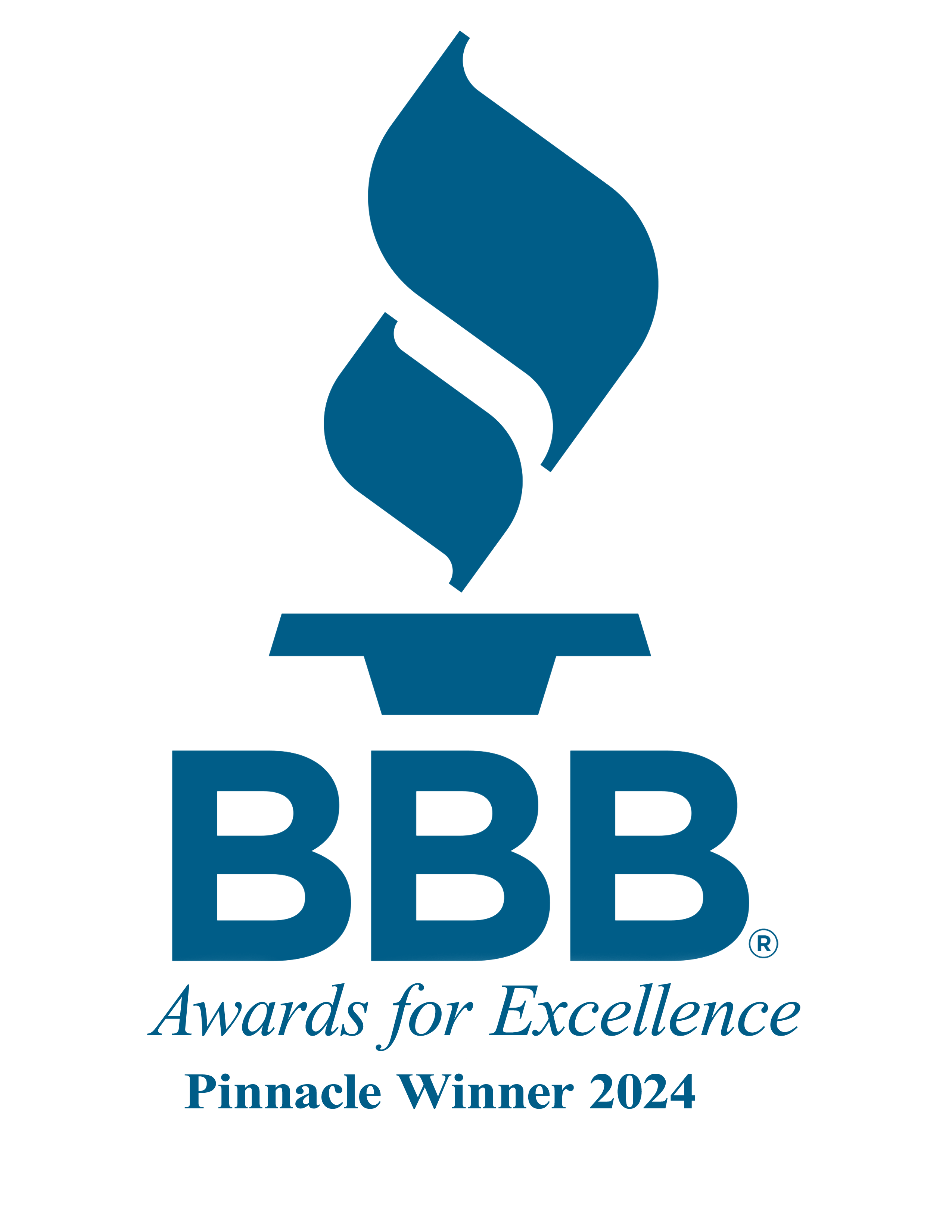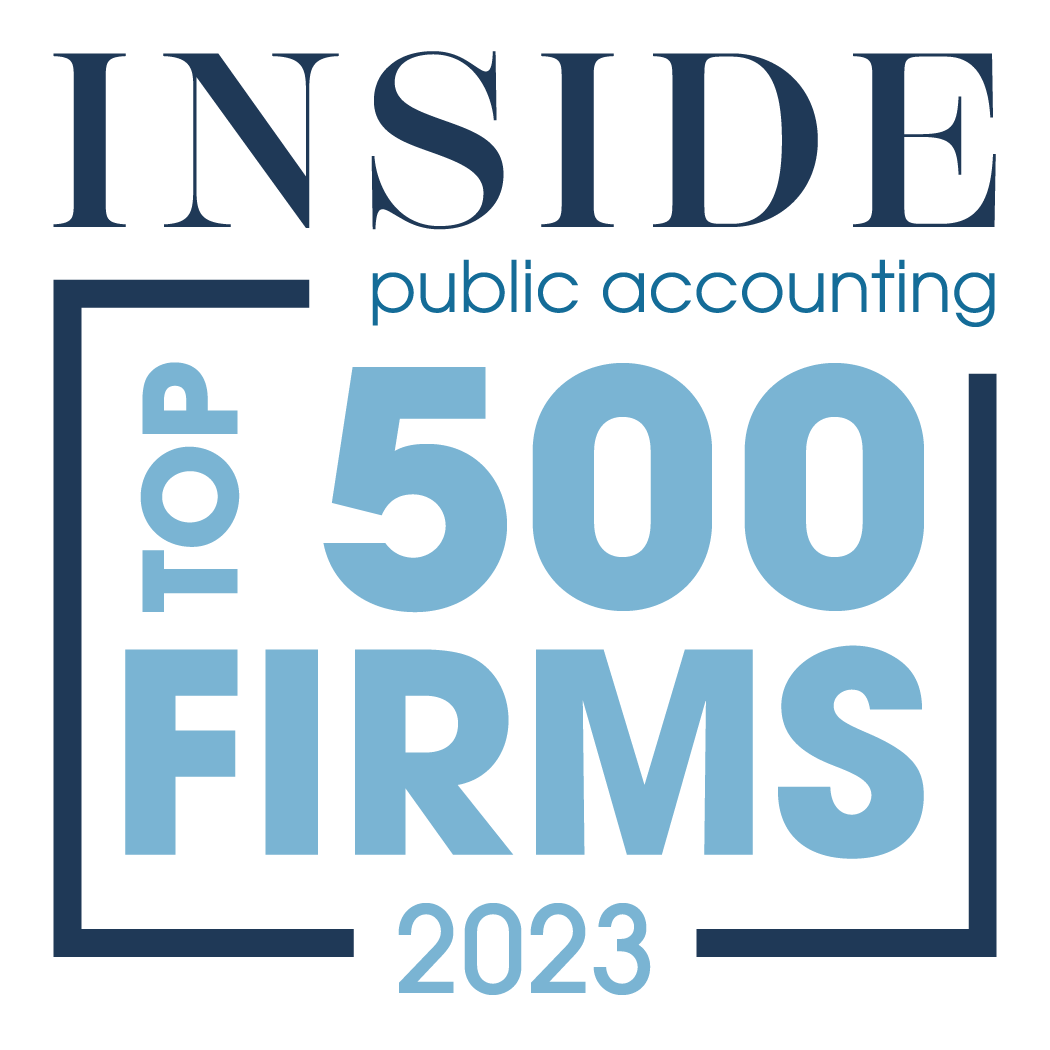COVID-19 – Small Businesses the SBA programs, and the CAREs Act.
Our world is going through unprecedented times. The COVID-19 virus is not only a healthcare crisis but an economic crisis as well affecting millions of small businesses, their owners, and employees.
DRDA CPAs & Business Consultants care about you, your family, and your business. We are hard at work – remotely – to continue to find the best solutions for our clients.
On March 27th the President signed into law the CAREs Act which contained $376 billion in relief for American workers and small businesses.
It was a historic undertaking and the SBA processed more loans in two weeks than they would in 20 years. Programs are now out of money. It is anticipated that Congress will appropriate more funds, maybe as early as this week.
In the meantime, we wanted you to have this information:
• PPP & EIDL programs are out of money
• Banks and SBA are not currently taking applications
• Congress will appropriate more money
• If you did not get your money from the first allocation you MUST be ready for the next one – now is the time to complete the gathering of your information so your application can be submitted the day the programs reopen
What you can do in the interim:
• CAREs Act allows you to borrow up to $100,000 from your 401k
• You can utilize a BORSA Plan [brief description of BORSA] or if you are already a BORSA client you could roll more funds (if you have them available) into your plan and invest into your C Corp
• Line of Credit with your Bank
• Unemployment
DRDA continues to monitor the situation on an hour by hour basis. We’ve hosted several webinars over the last two weeks and will start those back up once the programs get refunded. You can register for webinars on our main site DRDACPA.com. We are also blogging the latest information we have.
If we can help please reach out – you can call me direct if you’d like 281-954-6023 or email suzy@drdacpa.com
- Published in Business Lending, ROBS 401(k), Small Business
Coronavirus and Your Tax Filing and Compliance
Beneath the headlines of an outbreak, fatalities in the thousands and infecting tens of thousands worldwide sits other news: panic buying at grocery stores, whipsawing on Wall Street, and the specter of unprecedented disruption to everyday lives and business — all with less than five weeks to go before Tax Day.
–
So, how is DRDA, LLC planning on dealing with coronavirus just as the season heats up?
“We are taking a proactive approach to dealing with this issue,” said Doug Dickey, CPA, CEPA, Principle Partner of DRDA, LLC. “Like any other Hazard Preparedness or Disaster and Emergency Planning, we are committed to having a system in place to ensure the safety and security of our staff and clients with minimal disruption to our services.”
Being prepared to prevent, respond to, and recover rapidly from public health threats can save lives and protect the health and safety of the public. Though some people feel it is impossible to be prepared for unexpected events, the truth is that taking preparedness actions helps anyone deal with hazards of all types more effectively when they do occur.
The IRS is taking a wait-and-see approach: “Our internal working group will continue to closely watch this and promptly respond to any emerging situations to protect our employees and taxpayers interacting with the agency,” the agency said in a statement. “Normal IRS operations are continuing, and we are seeing a strong, smooth filing season for the nation.”
More than likely the IRS is developing contingency plans, as they did with the government shutdown. Historically they have developed a hierarchy of essential and non-essential services. Our belief is that return filing and the collection of tax due will be at the top of their essential service list.
Taking it seriously
“DRDA, LLC has had remote employees and work from home employees for years. We are ensuring that everyone on our Team is set to work from home if needed,” said Doug Dickey, CPA, CEPA. “
“Different” might be one word to describe the potential disruption. Living on the Texas Gulf Coast we think ahead in detail for weather or power outages. A new and largely unknown virus is a new and different disruption. Since there is very little known of COVID-19, it is being treated as a disaster or an event that would require a business to invoke their Emergency Plan. It is imperative to be prepared with a contingency plan for any natural or systemic challenge.
In the event of a citywide mandate for public safety which would require the staff to stay home; we will continue to serve you by enabling our staff with home workstations, along with constant communication with the entire firm and our clients. Our computer and phone systems have been in the cloud and VOIP for years. There is no difference in access from home or office.
Digital exchange
Tax prep also often depends on face-to-face conferences with clients with little more than the width of a desk between us.
Most preparers complete hundreds of individual returns per year and have face-to-face meetings with about ten percent of the clients. The trend in our industry for the more substantial firms has been leading to digital productivity and remote access. As stated previously DRDA, LLC has been digitally in the cloud for years so the impact to our business will be minimal. Almost everything we do can be conducted remotely via phone, video conferencing, email, fax, secure portals and remote electronic signatures.
We encourage our clients who normally come in for an interview or drop off, pick up or mail their documents to upload their information through the secure client portal if you can. With less interviews, and traditional mailing routes, there would be less contact and increased safety for all. We are all human and human safety and well-being is always our first concern.
Technology will help
We have encouraged clients to use the portal and upload their documents since the beginning of Tax Season (click here to access our secure portal). We believe in these times, if more clients utilize this approach, it will foster a safer and better document delivery and acknowledgment process for everyone. We are currently enhancing our website with even more detailed information about how to use the portal if you choose this option (click here for help with our secure portal).
To make certain we can continue to serve you, DRDA, LLC has incorporated applications from the cloud, with two-factor authentication. In the event of a virus emergency, the firm’s e-workflow would involve alerts to clients in case of quarantine; instructions to use the firm’s encrypted portal; staff scheduling and payroll; monitoring of each stage of work; shipment to the client for e-signature and electronic payment; and e-filing.
Rest assured we are working diligently to ensure a seamless transition in the event of an emergency happening. Our primary endeavor is the safety and security of our staff, clients and community while serving you.
If you have any questions or concerns, please do not hesitate to contact us directly.
- Published in Tax, Uncategorized
Is There Good Tax News on the Horizon for Workers?
In Congress’ haste to push tax reform through in late 2017 they unfairly (some say) eliminated the deduction for employee business expenses through 2025. The suspension of this deduction negatively affected taxpayers across many different occupations – first responders, school teachers, military personnel, transportation workers, construction workers and others.
Well, there may be good news on the horizon for these taxpayers. As first reported by Alan Viard of TheHill.com there has been legislation introduced in Congress by Democratic Senator Bob Casey (S.2718) and Democratic Representative Conor Lamb (H.R. 2103) to bring back the employee business expense deduction. This would bring individual tax reform more in line with corporate and small business/self-employed reform that was passed by Congress as part of the Tax Cuts and Jobs Act of 2017 (TCJA).
TCJA did a good job of bringing much needed reform to our corporate tax structure. It did a fair job of reforming the part of the tax code that applies to small businesses and the self-employed. However, it fell short of what was needed for individual tax reform. I use the following analogy to describe the recent effort at tax reform — corporate tax reform was a stand-up triple, small business and self-employed tax reform was a stand-up double and individuals made it to first base, but they got there by being hit by the pitch. Congress had a once in a generation opportunity to make meaningful change to our tax code and they fell short when considering the effect on individuals.
In his article in The Hill, Alan Viard does a good job describing the inequity caused by the elimination of the deduction for employee business expenses. Businesses can rightly deduct the costs associated with generating revenue. Why can individuals no longer do the same thing? As Viard points out, this violates a very fundamental rule of fair tax policy. Fair tax policy should always be applied consistently and in this case it is not. An individual should be able to deduct the costs they incur to earn their wages. (See Viard’s full article at The Hill)
Effective and fair tax reform seemed within reach as Congress worked diligently on TCJA during 2017. The consensus among most experts was that Congress would pass a meaningful, generational reform package in 2018 once their work was completed. However, as often happens, political expediency got in the way of Congress finishing their job.
Congress was successful in effecting much needed and meaningful tax reform for corporate and small businesses with passage of TCJA. They need to finish the job for individual workers. They have another opportunity to correct their mistake and apply consistent and fair tax policy across all classes of taxpayers. It looks like they may be getting started on that effort. DRDA CPA’s will continue to monitor this important piece of legislation and keep you informed of its progress.
You may contact Senator Bob Casey at Senator Casey and Representative Conor Lamb at Rep. Lamb to weigh in on this important pending legislation. You may contact the author, Larry Lonero, E.A, at larry@DRDACPA.com and DRDA CPA’s at (281) 488-2022 or www.DRDACPA.com.
- Published in Tax
10 Benefits of C Corporations
Selecting the right business structure is one of the most important decisions that entrepreneurs make when starting a new company. Although many small businesses begin as sole proprietorships or partnerships, some business owners incorporate to protect personal assets. Now that the 2018 federal tax reforms are in place, structuring your new business as a C Corporation appears to be the clear winner when it comes to the amount of taxes paid.
If you are establishing a business that sells products, operates from a store and has employees, structuring your company as a C Corporation could be for you. Here are 10 benefits under the new tax law.
1. Minimized Tax Burden
The new corporate tax rate of 21% is considerably less than the maximum 37% rate to which individual partners may be subject. If owners take salaries, the salary is not taxed at the corporate rate.
2. More Fiscal Year Flexibility
C Corp fiscal years do not have to coincide with calendar years. Thus, companies have more flexibility in when their fiscal year begins and ends and can determine when to take losses or pay taxes on bonuses. The ability to carry profits and losses forward and backward can further reduce the tax burden.
3. Deducting Salaries and Bonuses
Shareholders as well as owners can become salaried employees. As such, a C Corp can fully write off payroll taxes. If a business does not make distributions to its shareholders and only provides salaries, the move could result in further income tax savings. Shareholders of C Corps commonly choose to receive their income in this manner instead of receiving the money in dividends, which are subject to additional taxation. C Corps have the widest range of deductions allow by the IRS.
4. Medical Premiums and Other Benefits
Owners of C Corporations can receive health coverage virtually tax-free as premiums are full deductible. A C corporation may also set up medical reimbursement plans to pay for out-of-pocket medical costs of employees As long as the plan does not favor the owners, reimbursement are not taxable to employees, while they may be deducted by the corporation. Premiums for long-term care and disability insurance also qualify.
5. Amassing Funds for Expansion
Retaining profits for future expansion is an important consideration for many business owners. C Corporations allow you to easily shift funds and hold them for future expansion at a lower cost than S Corporations where profits appear on an owner’s income tax return even when they place those funds back into the company.
6. Lower Audit Potential
The audit potential for C Corporations is lower as there is no income or loss passthrough like other entity types. Generally, if there is an adjustment the owners of a C Corp will not be held personally liable for any additional taxes assess to the C Corporation due to an audit. If a tax assessment exceeds the value of a business, the owners may be able to abandon the bankrupt company and walk away from tax debt.
7. Easier to Attract Investors
C Corps have an easier time attracting investors because owning shares is considered preferable to owning LLC membership interests. This preference allows corporation to obtain capital through equity financing easier than an LLC. Venture capitalists also prefer to invest in C Corporations. Because of these pluses, it may also be easier for a C Corp to obtain bank financing, which can be especially important for capital-intensive businesses.
8. No Restrictions Placed on Shareholders
Unless the corporation’s governing documents say otherwise, there are no restrictions on who can own stock in a C Corporation. Shareholders can come from anywhere in the world and their numbers are unlimited, unlike S Corporations, which can only have 100 shareholders. C Corps can also have several different classes of shares.
9. Charitable Contributions
C Corps are the only corporate entity that can deduct charitable contributions to eligible charities as a business expense. These contributions cannot exceed 10 percent of taxable income in any given year but you may carry those deductions over the allowable amount for the ensuing five years.
10. Carrying Losses Over Multiple Years
As a C Corporation, you can take large capital and operation losses over several years and the IRS won’t scrutinize you. This consideration is particularly important for start-ups that may incur substantial losses in the first year, but may rebound quickly and want to carry these losses forward to future tax years.
Other advantages may also be available to you. Contact DRDA for more information on C Corporations and advice on which corporate structure is best for your needs.
- Published in ROBS 401(k)
Top 10 Small Business Industries to Start in 2018
You’re a born entrepreneur. You’re independent and have had success in your current position, yet you want more as you want to be your own boss and make a profit. However, many would-be business owners have difficulty deciding on an industry in which they feel they would thrive.
Luckily, finding that perfect idea is easier in 2018 as the economy is thriving. Find your inspiration among these thriving industries that have the potential to be profitable many years into the future.
1. Disaster Relief
A spate of devastating hurricanes and other natural disasters over the lat 15 years has increased the demand for such services. This industry isn’t limited, however, to large natural disasters, mitigation for water, fire and mold damage is also in high demand. Revenue for this industry is expected to increase to $11.2 billion in 2022 from $10.1 billion in 2017.
2. Elder Care
As baby boomers age, so will the need for services aimed at this demographic. Ninety percent of baby boomers indicate they want to continue living in their own homes, which will create a wealth of opportunity for businesses that serve seniors. Consider “on the go” services that travel to senior to help them. From driving and delivery, cleaning, catering, pet care, home care and much more, the market is ripe for offering services that go beyond helping seniors bathe and dress themselves.
3. Child-Oriented Businesses
At the other end of the spectrum are services related to children. Parents are spending more on their families as school budgets dwindle. Specific areas include quality preschool education, art classes and events, tutoring in ready, math and English and fitness/sports instruction, such as lessons for tennis, swimming or golf.
4. Virtual Reality
Virtual reality computing (VR) I about to make a huge leap forward in immersing the user in a realistic sensory experience. According to Statista, the worldwide VR market is expected to surpass $40 billion by 2020. Potential uses go beyond 3D movies and include markets such as real estate marketing, team-building exercises, social media interaction, training and meditation.
5. eCommerce
Walk through almost any shopping mall in a developed country and you’ll see empty stores. People are shopping, but they are doing so online. Platforms such as Amazon, eBay and Etsy make it easy to sell online or go your own route and set up a website. Finding a niche that needs servicing can make your venture more successful
6. Corporate Wellness
Business have realized that investing in employee health saves millions in lost productivity and missed workdays. More than 70% of employers now offer some type of wellness programs, up from 58% in 2008. Many businesses hire outside firms to provide services such as massage, yoga, meditation, fitness coaching and more as well as managing these services.
7. Alternative Foods
Alternative-protein foods such a veggie burgers and gluten-free products are hot items. Technology has recently improved the taste of these products, increasing their demand even more. For gluten-free, there is a built-in market of individuals suffering from Celiac disease, while alternative protein sources are attractive to vegans as well as those who are trying to eat healthier. The market for alternative protein foods is expected to grow 6.8% by the year 2022.
8. Renovation
This one comes with a caveat: you must have a background in building construction. Ask anyone who wants a kitchen or bathroom renovation about the trouble they have finding a reputable contractor. Putting your knowledge to work as a general contractor who can pull together reputable architects, interior designers and tradespeople to help customers realize their dream home can result in considerable profits.
9. Green Living
Building materials and practices that reduce pollution and waste continue to gain traction. This industry includes sales, service and installation of solar panels as well as tiny home living and off-grid living. Sustainable building materials are currently a $36.1 billion industry and are expected to grow by 10.6% annually through 2020.
10. Facilities Support
Facilities services is a catch-all term encompassing a full range of services for business that include cleaning, security, building, maintenance, painting, moving, etc. The industry is expected to grow by 30% through 2026.
DRDA Can Help You With Establishing Your New Business
You don’t have to go it alone. DRDA specializes in creative solutions to help entrepreneurs finance new businesses. Our exclusive BORSAtm (Business Owner’s Retirement Savings Account) allows you to use retirement savings to fund a new business without incurring penalties or excess taxes. We can also handle all the normal activities that you expect from a certified public accounting company. Contact us today for more information.
- Published in ROBS 401(k), Small Business
How to Use Retirement Funds, Tax and Penalty Free, to Purchase a Business
For most entrepreneurs, the most difficult part of starting a business is not coming up with an idea but financing the start-up. Over the past few years, many lenders have tightened their requirements for small business loans, leaving some would-be owners out in the cold. Another option is available, namely using your retirement funds to finance a business startup or providing the equity lenders need to make a loan.
In most instances using retirement funds will incur taxes and penalties, however there are three ways in which you can avoid both:
- Using a Roth IRA if you are over age 59 and the Roth IRA has been open at least five years
- 401(k) Loan Option
- Using a BORSA plan also known as Rollover on Business Startup Solution (ROBS)
Roth IRA
Taking a Roth IRA distribution may not be the most efficient way to fund a business, but it does have a potential advantage as it could help avoid taxes on the gain from the money used.
401(k) Loan Option
Some 401(k) plans allow you to borrow against your retirements account. This feature works well only if a small amount of money to start a business is required. Plans with this option allow participants to borrow the lesser of $50,000 or 50% of the vested value of your plan assets. The loan must be fully repaid within five years, via payments that are at least quarterly, at market interest rates.
ROBS
ROBS is the most flexible way to fund a fledgling business. To understand this structure you have to understand provisions of the Employee Retirement Income Security Act (ERISA) and the Internal Revenue Code (IRC). The plan should be approved by both the Department of Labor (DOL) and the Internal Revenue Service (IRS). This approval comes in the form of a Favorable Determination Letter from the IRS.
This method is a great way to fund a business, especially if more than $50,000 in a qualifying retirement account is available. If less than $50,000 is available, taking a loan against the investment may be a better option. ROBS may be used for business acquisition, working capital or as a down payment for additional financing. If you meet the criteria, it is usually the most cost-effective method, plus there is no requirement to repay the money especially in those early years of operation.
Setting up a ROBS involves rolling over a pre-tax IRA or 401(k) plan account into a new 401 (k) sponsored by a “C” Corporation. The rollover funds are then invested into the stock of the “C” Corporation. The account holder can then earn a reasonable salary as an employee of the business.
Starting or buying a new business is complicated. Using your retirement money to fund a business is a viable option but also adds a layer of complexity that you need to understand. Your best plan of action before you do anything is to consult with someone who understands the pros and cons of each of these options. DRDA, PLLC – CPAs has provided these services to thousands of entrepreneurs and we would be happy to discuss this option and help you determine what method works best for you. Contact us to learn more about BORSA (Business Owner’s Retirement Savings Account), our exclusive ROBS plan that allows investors to access their 401(k) funds tax and penalty free.
- Published in ROBS 401(k), ROBS 401k Provider, Starting a Business
How to Finance a Business with an SBA loan and Retirement Funds
Entrepreneurs seeking to finance a startup company often look to the Small Business Administration (SBA) for the funding they need to get their company up and running. One of the most beneficial ways to get the funds needed is to use a 401(k) financing, also called a Rollover on Business Startup (ROBS), in conjunction with an SBA loan. The ROBS process allows the borrower to leverage retirement funds without incurring any tax or penalties. SBA loans and ROBS have advantages as stand-alone instruments but when they work in conjunction with one another, they can provide even greater buying power and flexibility
Advantages of SBA Loans
The SBA generally does not make direct loans to entrepreneurs. Rather, it provides a guarantee to lenders for the money they loan to start the business. This guarantee protects lenders by promising to pay the loan if the business owner defaults. SBA loans are a popular form of financing because the interest rate is lower, typically 6% to 9% and offer longer repayment terms than other forms of financing. These loans do have qualification criteria starting with a required credit score of at least 680 along with a strong financial and industry experience history.
The SBA requires would-be business owners to have a minimum 10% down payment on all SBA loans, however, many lenders providing SBA loans may require a down payment of 20-30% of total startup coasts. For an average size loan, the down payment will be between $40,000 to $120,000.
How ROBS Helps to Secure an SBA Loan
ROBS allows entrepreneurs to use retirement funds to start or buy a business with money that has been invested in a 401(k), IRA or other qualified account as a down payment for an SBA loan without triggering any tax penalties. Using a ROBS account to fund your down payment also makes it easier to qualify for an SBA loan As long as you have at least $50,000 in a retirement account that can be rolled over in a ROBS account you may qualify for this type of funding.
When you combine a ROB account with an SBA loan, you’ll access capital from two different sources, thus reducing the amount needed from each. You’ll save money on interest and reduce your monthly payment. Securing a loan with ROBS can allow you to become debt-free sooner, putting you on the road to profitability.
Make ROBS Management Easy With Our BORSA Plan
Funding your business with a ROBS account requires several necessary steps, including the establishment of a “C” Corporation. Ongoing management is also necessary to ensure that you remain in compliance with all regulations (i.e. DOL, IRS, etc.). DRDA’s BORSA (Business Owner’s Retirement Savings Account), an exclusive ROBS plan that allows investors to access their 401(k) tax and penalty free will help set up your financing and perform the necessary ongoing work to make sure you remain in compliance with all ROBS requirements. Contact DRDA for more information and a consultation.
Contact us to learn more about BORSA (Business Owner’s Retirement Savings Account), our exclusive ROBS plan that allows investors to access their 401(k) tax and penalty free.
- Published in ROBS 401(k), ROBS 401k Provider, Starting a Business












